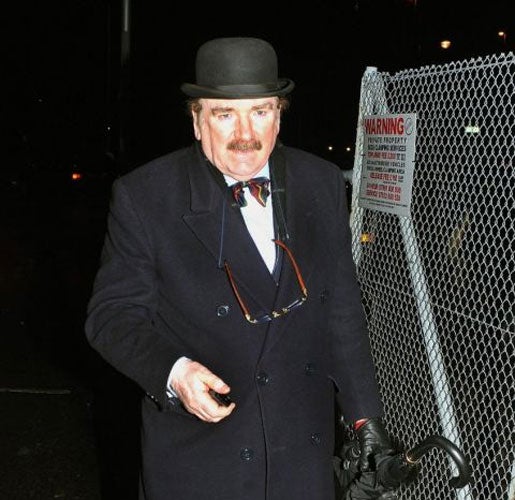Gang 'tried to steal £229m from bank'
Computer hackers cloned passwords after being smuggled in by corrupt security guard, court is told

An international gang hatched a plan to steal £229m from some of the world's largest companies by hacking into the computers of a Japanese bank in London, a court heard yesterday.
Belgian hackers were smuggled into the headquarters of Sumitomo Mitsui bank by a corrupt security guard and installed hidden software on to several computers to clone the passwords needed to transfer funds.
They came back the following night and tried to send £229m from the bank's clients to a series of bank accounts in the names of companies the gang had set up in Dubai, Hong Kong, Singapore and Spain. But the plot failed when the hackers mistyped one of the passwords.
Opening the case against three alleged gang members at Snaresbrook Crown Court yesterday, Simon Farrell QC, for the prosecution, said: "The case concerns a dishonest, bold and sophisticated attempt to steal £229m from the Sumitomo Mitsui Banking Corporation in the City of London.
"The attempt was made by surreptitiously entering the bank at night, by corrupting its computer system and by attempting to electronically transfer the money. A number of people were involved in different ways to steal the money, while some were more closely connected with its distribution around the world."
The plot started in September 2004 when Kevin O'Donoghue, a security guard at the UK headquarters of the Sumitomo Mitsui Banking Corporation, helped the Belgian computer hackers Jan Van Osselaer and Gilles Poelvoorde to sneak into the building at night and install hidden cloning software on several computers. It took screenshots and copied usernames and passwords of the bank's employees which Osselaer and Poelvoorde used when they sneaked into the bank on 1 October 2004.
That night, between 11.30pm and 4.30am, they attempted to make 10 transfers, all of which failed, prompting them to return again the following day and attempt another 11 transfers.
In total, they tried to transfer £229m from companies including Nomura Asset Managements and Toshiba to bank accounts held in the names of various companies the gang had set up in Dubai, Hong Kong, Singapore and Spain. But, crucially, both attempts failed because the gang typed the wrong numbers into the system.
Two of the gang's other members then attempted to try to recoup some of the money, the court was told. It is alleged that on Sunday 5 October 2004 Hugh Rodley, who preferred to be known as Lord Rodley, a title which he had purchased, and David Nash sent a fax to the Emirates Bank in Dubai, where they held a company account, attempting, and failing, to secure the release of €12.25m (£11.5m).
Staff at Sumitomo Mitsui became aware that something was wrong when they returned to work to find that their computers had been tampered with and cables had been cut. By this time police were already aware of the gang and had been watching them for several days.
They arrested O'Donoghue, 33, and the jury, at Snaresbrook Crown Court, heard that he was the "inside man" who had tampered with the CCTV, in an attempt to avoid detection. Mr Farrell added: "His role was to let them into the bank and to cover their tracks." When his activity aroused the suspicion of a colleague, who asked why O'Donoghue was allowing people into the building at night, he said that it was for a late-night poker game.
Van Osselaer, 32, was arrested two years later in November 2006 at his home in Belgium where police found a laptop containing the cloning software used on the bank's computers.
Poelvoorde, 34, was arrested two years after that in October 2008. Those three have since pleaded guilty to conspiracy to steal from the bank.
Hugh Rodley, 60, David Nash, 47, and Inger Malmros, a 58-year-old Swedish woman, are all alleged to have set up the companies and the bank accounts which were supposed to receive the stolen millions. They are on trial charged with conspiracy to defraud and conspiracy to transfer criminal property. All three deny the charges.
Mr Farrell said the three were, "closely linked to the accounts that were to receive stolen funds". Rodley was involved in every company set up to receive money and was "using others to front what he really is in charge of".
An alleged seventh gang member, Bernard Davies, 73, was also due to stand trial alongside them, but he died at the weekend. The trial continues.
